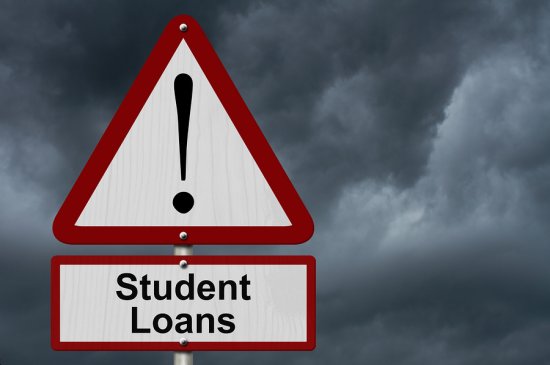
Types of student loans
There are two major classes of student loans – federal loans and private student loans. Federal loans typically do not take into account the creditworthiness of the borrower. The only type of federal loan that requires a credit check is a Parent PLUS or Graduate PLUS loan and, even then, the credit standards are much looser for PLUS loans than a private lender requires.
Private student loans always look at credit scores as a condition for approval. If your credit is inadequate because you have too much debt, have delinquent bills or have a recent bankruptcy on your credit, you will likely be rejected. But if you can provide a co-signer to guarantee your repayment, you could be approved. Tight credit criteria for private loans makes federal loans much more appealing.
Student loans and bankruptcy
Once you borrow student loans, you cannot discharge them in bankruptcy unless you're seriously and permanently disabled, impoverished or have a serious medical condition that is chronic and unlikely to change. From a legal perspective, private student loans age out of enforceability under a statute of limitations like other consumers debts.
Federal student loans, on the other hand, have no statute of limitations and will last until you pay or until you die (pretty grim, huh?). On the flip side, if you're an adult who wants to return to school and needs to borrow, federal student loans are usually the cheapest option. Applying for the most common types of federal loans will not be affected by you having filed a prior bankruptcy.
Education + bankruptcy can equal a fresh start
If you're mired in debt because you're not earning enough money to get by, getting a degree or other advanced training to improve your career opportunities makes sense. However, it can be hard to deal with the costs and time it requires to attend college or a training program while balancing your financial responsibilities. This is unfortunate since college is often the ticket to a lifetime of better earnings.
If you have significant debts and your income is low and unlikely to change without a degree or advanced training, filing bankruptcy first makes sense. This way you can get a financial fresh start that can allow you to afford school more readily. You can also borrow less to attend school if you don't have to deal with old bills and debts and can just focus on paying for school.
Please read the original post on our affiliate site, BillsBills.com
